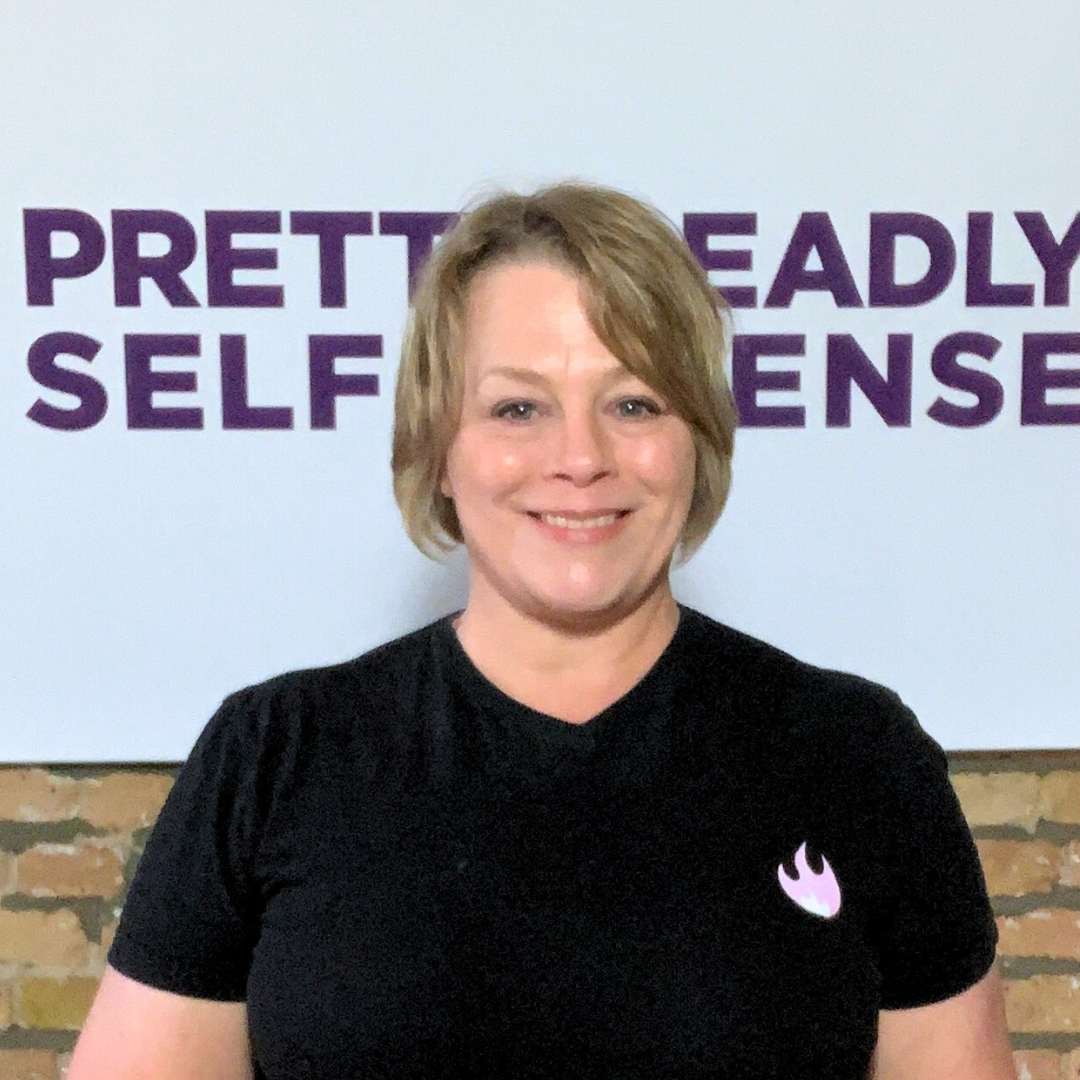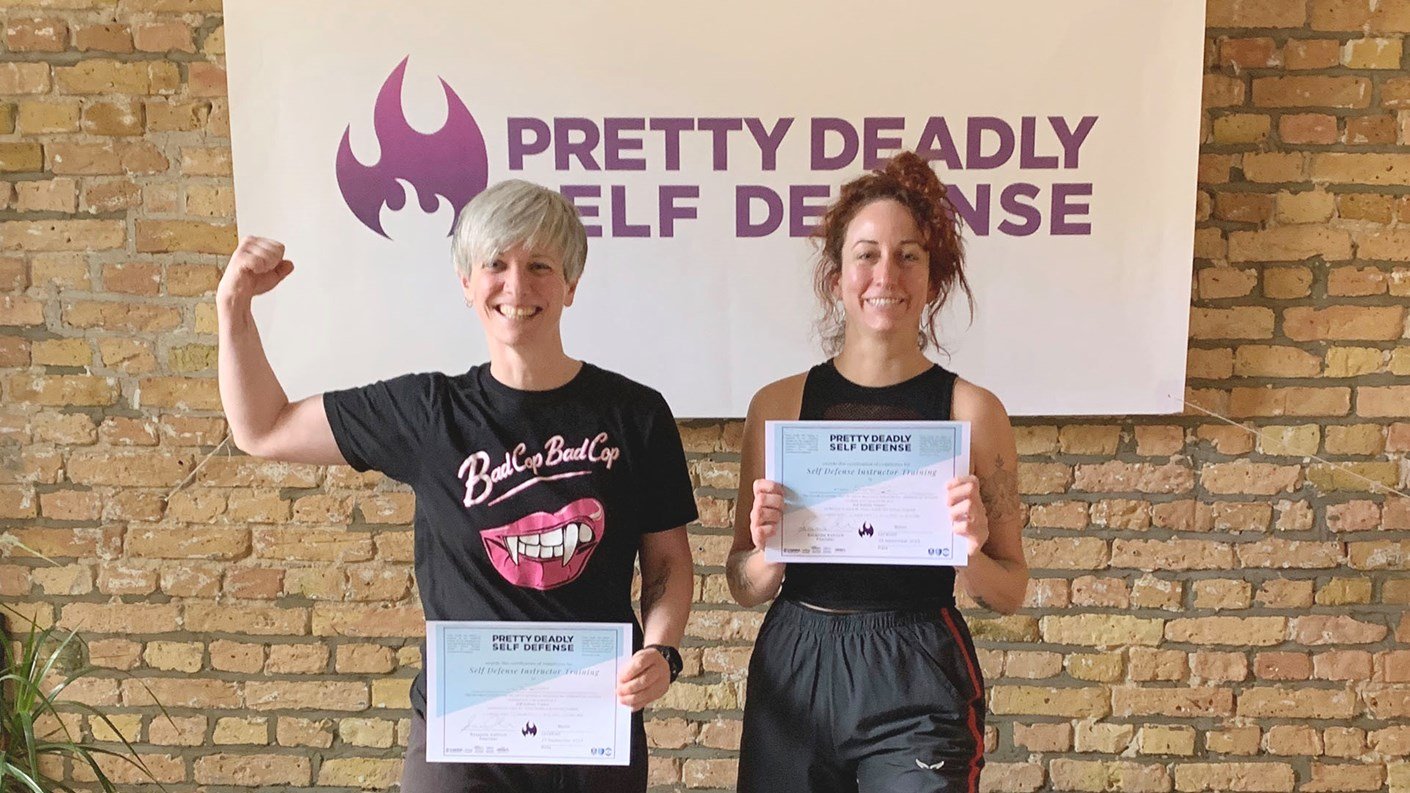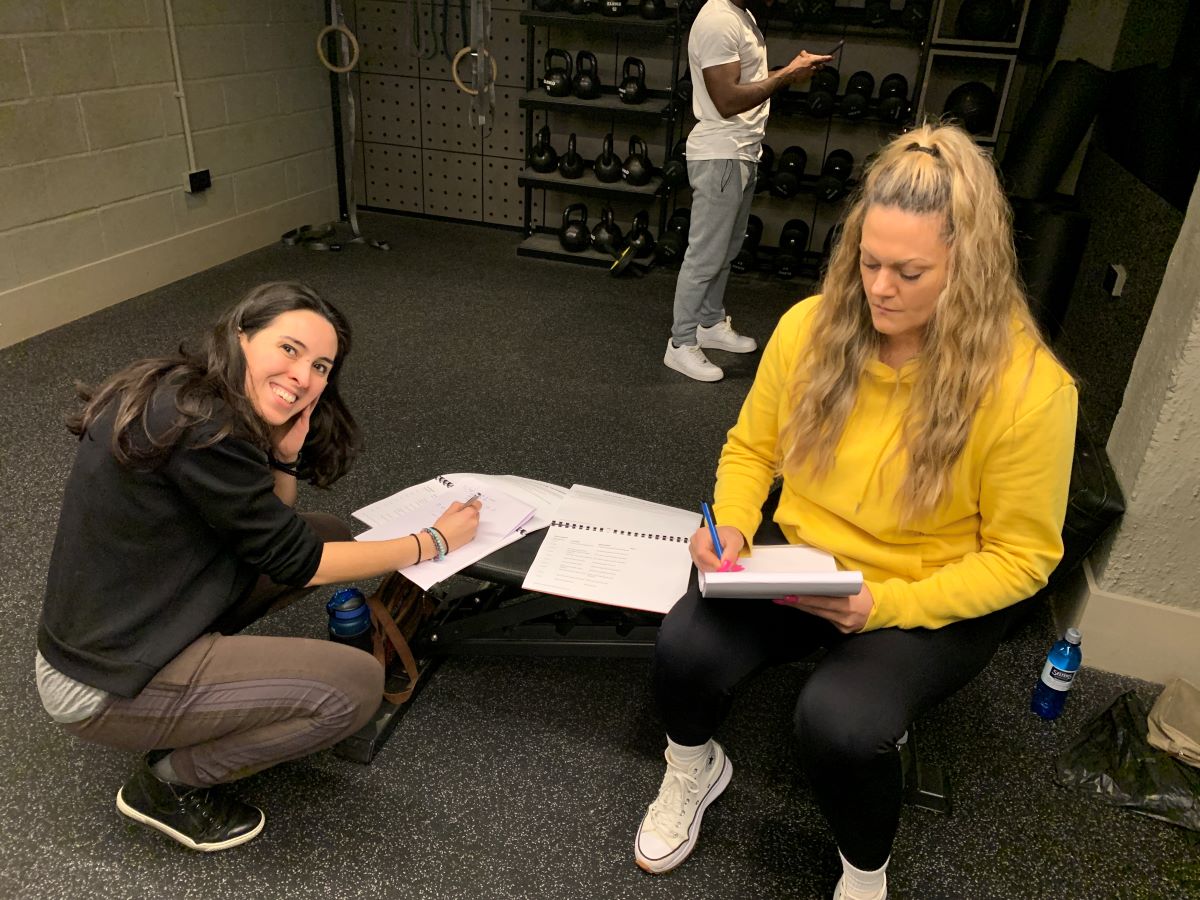User-focused fitness training makes physical activity accessible
The Pretty Deadly Self Defense trainer certification teaches how to support clients with specific needs and make physical activity more inclusive
The Paralympics is an incredible global event that highlights the achievements of high-performance athletes with a broad range of abilities. One of the most important components of it, though, is using the Games as a platform for promoting sport and physical activity accessibility for everyone. While accessible physical activity is at the forefront of people’s minds, as the professional body for the sport and physical activity workforce, we’re keen to find new ways that practitioners including coaches and trainers can develop skills to support not only these professional athletes, but also the wider community.

We spoke to Susie Kahlich, martial artist with 24 years of experience and founder of Pretty Deadly Self Defense, about their CIMSPA-endorsed trainer certification. The course teaches trainers how to work with clients with a wide range of specialist needs including trauma, providing fantastic transferable skills for sport and physical activity professionals.
As a training provider, Pretty Deadly’s ethos is to keep things accessible and simple. The self defence system, taught in blocks of classes, is centred around our biological self defence systems. Founder Susie labels the style “user-focused self-defence”. While the training naturally focuses on learning and teaching how to protect a person from physical attack, it stems from an understanding of natural movement and body dynamics as a way to build body literacy and body confidence. This is essential to teaching any kind of physical activity, from coaching children with growing bodies to ensuring that professional athletes are able to maximise their unique physical potential.
The course is mapped to the Coach Professional Standard, demonstrating that it teaches the practical skills required to work as a coach or trainer across the sport and physical activity sector. The driving force behind the Pretty Deadly approach, which is applicable for all coaches and trainers, is making physical activity achievable and sustainable for individuals with any kind of physical or mental barrier. This motivates clients to live their lives to the fullest and incorporate active wellbeing into their routine.
View the coach professional standard
Diverse experience
Now a global brand, Pretty Deadly Self Defense has worked with an extremely broad cross-section of society. Programme trainers working around the world have gained experience in teaching people that have experienced sight loss; those with long-term and terminal illnesses; people from different religious backgrounds; and members of the LGBTQIA+ community. Class attendees have also spanned all age groups – from teaching an adapted class for children, to 18-year-olds still developing, to one Pretty Deadly trainer boasting the oldest client at 97 years old – the programme is open to all. Having connected with a myriad of individuals interested in becoming active and succeeded in teaching them self-defence, it was important for Susie to build this diversity into the trainer certification that the organisation offers.
As well as information on how to market classes and other business-essential guidance, the 30-hour certification programme includes time focused specifically on how to work with clients with a range of challenges that trainers may not have come across in their professional lives before. Susie shared the example of working with a client with multiple sclerosis:
“We teach trainers how to identify where somebody’s balance is. Depending on how severely their body is presenting signs of the illness, a person with MS may appear to us to be very out of balance. They might, however, actually be in balance for them.
“This informs our approach, teaching trainers how to identify where someone else’s centre of balance is. That’s a key starting point when focusing on body dynamics and natural movement and applies to all types of people and physical activities.”
Creating this informed approach to trainer certification has involved combining martial arts with aspects of cognitive behavioural therapy, scientific research and data about biological self-defence systems, including information about military PTSD therapy for veterans. Susie also brings her own training and experience to the table, from domestic violence to suicide and trauma awareness and of course martial arts training.
Trauma training
One module within the certification course focuses specifically on the latter. Susie explains that this begins with teaching how to identify when someone is potentially about to be triggered or is starting to experience a trigger and is struggling against it:
“Of course, if somebody breaks out in tears, it’s pretty obvious. But trauma is also embedded into the body in a way similar to an invisible disability, affecting a person’s movement in ways that could potentially be dangerous for trainers or other class participants. Even without a person realising, they may be relatively disconnected from their body, resulting in jerky movement.”
In the context of self-defence, Susie explains that “when these participants are punching and kicking, they don’t feel they can control their movements. The result of this, if unmanaged, is hitting too hard”.
The Pretty Deadly course trains the trainers to identify the signs of this embedded trauma, which is followed through with guidance on how to be supportive in the coaching environment. An important element of the content also involves talking about how trainers can minimise providing therapy-style support and protect themselves from trauma bonding. This is taught through soft skills, explaining how to deliver training with a non-aggressive and non-challenging manner, while making it clear that, as the trainer, you are the expert and in control of the session.
This ability to maintain authority and a professional distance while remaining a supportive and sensitive trainer is invaluable for many sector roles. Personal trainers, athletics coaches and swimming teachers all work closely with individuals and are susceptible to becoming overly involved in specialist issues best dealt with by professional therapists.


 When considering working with specialist populations, it’s more important than ever to look towards qualifications that have been assessed for quality. Completing CIMSPA-endorsed courses ensures that learning is relevant, accurate and will provide professionals with genuine career value.
When considering working with specialist populations, it’s more important than ever to look towards qualifications that have been assessed for quality. Completing CIMSPA-endorsed courses ensures that learning is relevant, accurate and will provide professionals with genuine career value.
